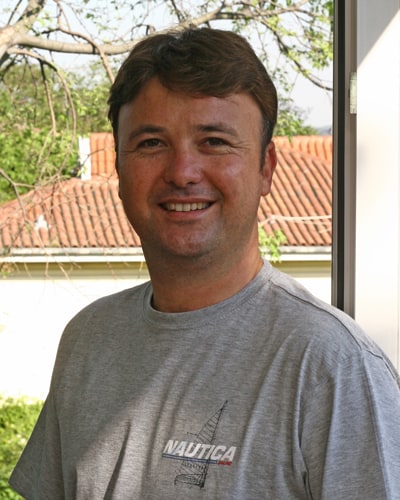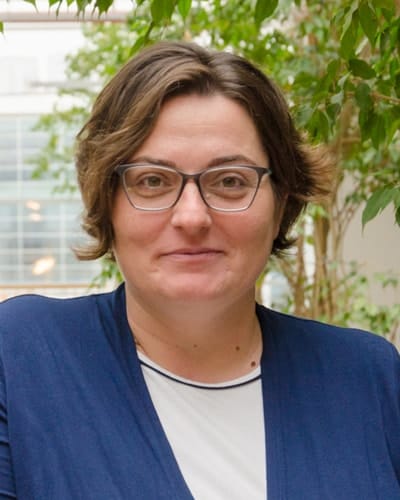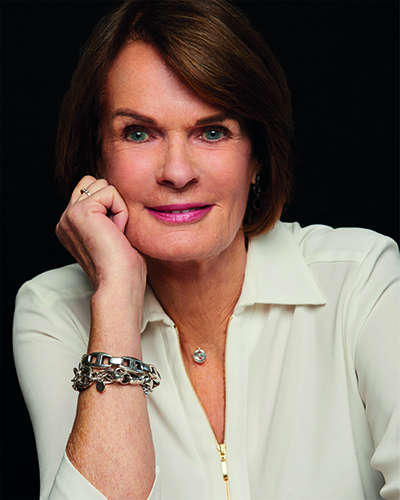[vc_row css=”.vc_custom_1586197115242{margin-top: 30px !important;}”][vc_column][vc_column_text]Our expert speakers, generously share their knowledge in specialized fields such as science-innovation-medicine-technique-art, and many more trendin topic.[/vc_column_text][/vc_column][/vc_row][vc_row][vc_column][vc_column_text]
Saffet Emre
Tonguç
Historian, Travel Writer, Professional Guide

Biography
“Passion for travelling comes from seeing the world as a jigsaw puzzle. Every trip will be a piece in this puzzle.”
Passion for travelling is genetic
Saffet Emre Tonguç travels, takes photographs and writes. Tonguç made it his profession to leave his home behind and travel. He explains his feelings thus: “passion for travelling is genetically coded into people. For me, this desire has broadened my horizons and perspectives. For most people life consists of working and acquiring property. For me, the important thing is to acquire mental affluence.”
Tonguç has been on numerous expeditions and journeys to more than one hundred countries. He says that Turkey should in theory be one of the world’s premier travel destinations, but there are major deficiencies in the way the country is promoted abroad. “Turkey is the shortest distance between points A and B. For this reason, an amazing number of civilisations left their mark on the country. One of the most reliable guide books, Lonely Planet, says ‘If you want to see Greek ruins, go to Turkey, not to Greece; if you want to see Roman ruins, go to Turkey, not to Italy’. This is so true! But we are not aware of this and we don’t appreciate it. I have been to more than one hundred countries; of all these places, Anatolia made one of the greatest impressions on me.”
Who is Saffet Emre Tonguç?
Saffet Emre Tonguç started working as a tour guide in 1987 whilst studying tourism. Since 1990 his amateur photographs have appeared in various international publications, primarily in the USA and Australia. He was a narrator on ABC’s “Good Morning America.” In 2005, he received the Rotary Club’s Professional Excellence Award. He has travelled to around one hundred countries both for professional reasons and personal interest. He was named Turkey’s most well-travelled tour guide by the Turkish Association of Tourist Guides in 2005. He holds the award for “Best Travel Writer 2006.”
Speech Topics
- 101 places to see: In the World, in Europe, in the USA and in Turkey…
- Istanbul and night
- Wealths of Turkey
- Exclusive routes
Deniz
Türkali
Actrist, Script Writer, Writer

Biography
Deniz Türkali is an experienced actress and screenwriter who has made many contributions to Turkish cinema. Türkali currently gives acting and specking lectures and plays for DOT Tiyatro and 2. Kat Tiyatro. She is now editing her book “Dishes of My Life” and Murat Çelikkan has written the story of her life. A series of talks which are now in the process of preparation will also be available shortly.
She also has two scripts, namely “Mine” and “The Petit Sparrow”. Türkali has a special place in her life for cinema. Türkali, married to director Atıf Yılmaz for the second time, was born to a family of art and literature. Her father, well-known author Vedat Türkali, played a significant role on her cultural and political approach.
Her life was filled with cinema and her days at Nişantaşı High School can be considered as a turning point. She started acting in those days and studied acting at the Conservatory just after she was graduated from Şişli College. After two years in Turkey, she continued her education in London. She worked with Dario Fo and Franca Rame in Italy. While engaged in music, she was also an editorial consultant for Milliyet Publishing. In 1980, she returned to acting. She continued music too. Her passion in music helped Türkali achieve success in solo plays. She hosted radio shows, wrote columns, played in cinema and TV movies and wrote scripts. She was a journalist for “Kaktüs” magazine, daily Milliyet and Hayat magazine. She write articles on various issues for Milliyet, Hürriyet and Radikal newspapers. She played Prudence Duvernoy in The Lady of the Camellias. She was also engaged in business and managed 5. Kat Restaurant and Leyla Café.
Who is Deniz Türkali?
Deniz Türkali, born in Istanbul in 1944, studied at Nişantaşı High School and Şişli College. She attended the conservatory in London. She wrote articles on social and political issues as well as pieces on the cinema of European Union countries in “Kriter” magazine. She recorded an album named “Şehvet” and played in many cinema movies and TV shows including Galip Derviş, Hürrem Sultan, Gece Melek ve Bizim Çocuklar, Eylül Fırtınası and Dudaktan Kalbe. Deniz Türkali was interested not only in cinema but also music. Her first marriage was with the Italian singer Ernesto Casalini and her daughter Zeynep Casalini is also an artist. Deniz Türkali spent almost half of her life with Atıf Yılmaz. This marriage continued until Yılmaz’s death.
Speech Topics
CAN ANYONE PLAY?
DO WE KNOW HOW TO USE OUR BODY LANGUAGE?
Remembering our as children, we can see that playing is just not that difficult.
Playing is at the focus of every aspect of our lives. It is not always on the stage or in front of a camera. Sometimes we find ourselves “playing”, intentionally or otherwise. Just ask yourself, are there not so many things you say pretending to believe them when you actually don’t? In business life, social interactions, family relations, friendships… Whatever we do, we are bound to play. First, for the sake of courtesy… The day started badly for you, you have a headache, you argued with your lover; you arrive at the office and your friend or manager says “good morning”. No matter what you feel, your response will be a fake smile and a “good morning”. You can play well or you can play badly. If your manager sees the trouble in that smile, then you are in trouble. Two times more of the same and it will not be a good impression for you.
This is where the body language matters. The difference between playing and faking is not just the tone of the voice but also the use of body language. What matters in the most significant play of life is that you should not make others see. If the people can see that you play, you have failed… In other words, you play badly. Persuading people on authenticity is not easy. If even you don’t believe in what you say, it is very easy to be noticed. Clichés like “good question” or “that is just what I think” are in the past. Sentences and tones are very important. Sports don’t help with a good use of body language. Each attitude, each move, each mimic means something. So, how do we play well?
IS THERE TIME FOR LOVE AS A MOTIVATION?
I asked a dear young friend of mine, “Do you flirt with your wife?” He replied with a little surprise, “I never have time for that.” “So sad” I thought. I encouraged him, “Please, always find time for this.” If business life interrupts even the flirt at home, we either do not know how to “flirt”, which brings along many other problems; or we don’t feel the need, which is an even bigger problem. Those who focus solely on business cannot succeed in the long term. Focusing and concentrating on a single aspect of life is never the key to success.
Living is an art. Never miss the little pleasures which make business more enjoyable. You cannot work with a long face and a curse. You need your creativity in every aspect of your life. The more “endorphin” we secrete, the more dynamic we are. Love is when happiness peaks. I know that this is not always possible, and not for everyone. But let’s think this way; love is a state of soul, so we are not in love with someone. First we fall in love, then comes someone… Even when there is nobody, it’s that mood of love that matters. This is what will motivate you and peak your “endorphin” level. The secret of success is in the details. It’s those details that motivate us and make us effective.
USING TIME, USING LIFE
How do we use our lives? Limited to a period of time which may never be lived again. These two dynamics coexist. Every individual has a unique but somewhat similar approach to the concepts of time and life. Our lives somehow connect…
Grasping the use of life and time itself “takes some time.” It also takes some time to realize this and say “time passes so quickly.” While we try not to lose control of our lives, we should also remember that we are in interaction with other lives we need. Whatever we do, we can make a mess out of our lives if we do not know how to use time. Not just ours, also the lives of people we work or live with…
A key issue in business life is information sharing and management. Sharing and managing time is equally important. How can we manage business life without wasting time? How can we prevent wasting time? How is that possible?
Remember that “Money is time, time is money!”
COMMUNICATION SKILLS
Every touch in our life is an interaction. Whatever you do, communicating well will bring you success, happiness, joy, strength and healthy relations. Do you think that a little care and patience, a positive approach and a strong language will do?
Aslı
Zuluğ, Dr.
Food Engineer, Academician, Entrepreneur

Biography
Dr. Aslı Zulug obtained her B.Sc. degree from Ege University Department of Food Engineering in 2003 and M.Sc. degree from Mediterranean Agronomic Institute of Chania (MAICH) Greece in 2006 about Business Management and Economics and, her Ph.D. degree from Ege University, Department of Agricultural Economics in 2010 and studied about consumer preferences on country of origin food products. Since 2008 she had worked as a food safety team leader in Swissotel the Bosphorus. During her sectoral activities she was giving part time lectures about food safety, nutrition, food politics and food and beverage management subjects in state and foundation universities. Since 2015 she is writing the column magazine about food hygiene and food economics subjects in “Gıda Türk”.
Celal
Seçkin
Management Consultant, EFQM Trainer and EFQM Assessor

Biography
Celal Seçkin is a graduate of Electrical and Electronics Engineering Department of the Middle East Technical University, Ankara, Turkey. He worked as an engineer and manager in PTT ARLA (TELETAŞ) and Siemens for 17 years.
He has undergone a variety of business excellence, management and leadership training programmes and has attended many national and international symposia, congresses and forums in the field of quality and organisational excellence as speaker, moderator and organiser
He worked at Turkish Society for Quality (KalDer) in 1998-2000, as Manager of the National Quality Awards Program and four years at the European Foundation for Quality Management (EFQM) in Oct 2000-Dec 2004, as Manager of the European Quality Awards Program (now known as EFQM Excellence Award) and worked as part of the development team for the EFQM recognition scheme “EFQM Levels of Excellence”, revision of EFQM Model and development of EFQM training programs.
As a qualified EFQM Excellence Assessment Team leader, he has participated and led numerous organisational excellence assessments both in public and private sectors in many countries. As a member of the EFQM Faculty, he has trained many hundreds of assessors in many countries.
Celal Seçkin is founder of Seçkin Consulting and Training Co. Ltd, a Turkey-based company in management consultancy covering organisational performance management, internal/external assessments, leadership, change management, strategic planning, process management, continuous improvement and teamwork.
He took part as an instructor in Professional certification programs jointly organised by KalDer and Bosphorus, Sabancı and Okan Universities.
He is highly motivated for continuous learning and passionate for working in multi-cultural environments and believes that the EFQM Excellence Approach is one of the key aspects that will contribute to a better future for human being.
Speech Topics
Stories of (Un)success in Corporate Excellence
What are similar about well-managed institutions? What are the barriers or facilitator en route to corporate excellence?
Sustainability, leadership and adaptation to change in corporate excellence.
Sharing of experience on corporate excellence.
Corporate Mirror: Self-evaluation; but how?
Why self-evaluation? How to ensure objectivity, fairness and clarity in self-evaluation? What are the strengths and areas of improvement available for determination by self-evaluation? How to benefit from the results of self-evaluation? What are the basic elements in designing the improvement process?
Diving Power Behind the Process of Change of Institutions: Leadership
What is the impact of leadership in corporate management, change processes and success? How to evaluate the relations between corporate culture, values & ethical perspective and leadership? What are the basic features of a successful leader’s profile? How to meet the expectations of the stakeholders and manage the relations as a leader?
How To Act at Inevitable Junctions: Change Management
The feeling of the need for change. Resistance and adaptation to change.
The role of leaders and leadership in the process of change. Corporate culture, values and change.
Management of change process. Role of stakeholders in change management.
That’s Life, But It’s Not Inevitable: Innovation
Why innovation? A need? A luxury? A requirement? A trend? A hobby? Making a difference? How? Relations with corporate culture and management approach. Examples of failure in innovation… Barriers, facilitators. Sustainability in innovation.
Let’s Work, Search, Understand and Solve Together: Moderation, Workshops, Management and Design of Search Conferences
Workshops on certain areas of focus for performance improvement and a better and more effective management approach?
Strategic planning.
Process management.
Employee satisfaction.
Customer satisfaction.
Social responsibility.
Change management.
Sustainability.
Ethics, corporate culture, values etc.
Barbara
Gray
TV Journalist and Media Coach
Communication
Crisis communications
Communications management
Public speaking

Biography
Barbara is a bicultural TV journalist and trilingual (English, French and German) living and working in Paris for over 30 years initially for ABC News US, then ITV News GB and subsequently as a freelance news producer for BBC TV and Radio, Channel 4 News, CNN, NBC Reuters…
After having realised hundreds of television interviews in both English and French, Barbara naturally transformed herself into a media trainer, carrying out teaching in how to handle the media, public speaking and crisis management for top executives in both English and French in France and abroad. Although she has been a media trainer for several years she remains a freelance TV journalist essentially for British and US broadcasters.
Media Training
Communication
Public speaking
Presentation skills
Crisis Communication
Şeref
Oğuz
Journalist, Writer

Biography
Şeref Oğuz, Turkey’s leading economic journalists and economists from journalists.
His spirit, does not fit into the economy, has led him to play critical roles in informatics and technology. For example, Şeref Oğuz, who signed the world’s first virtual rally (1996), produced numerous articles, writings and interviews on “freedom and virtual culture”. Seref Oğuz, who traveled around Anatolia, giving New Economy Conferences to SMEs, worked as Economy Manager and columnist for Sabah Newspaper for many years.
Oğuz is a graduate of Istanbul University, Faculty of Economics, he completed his master’s degree and economics at the same university. He made researches at the University of London and started journalism. Oğuz, known for his research on information economy, new economy and change, is one of the founders of Internet Society. Oguz, who took a break from journalism over the years, took on the role of Koç Holding New Economy consultancy in 1999. Oğuz served as Koç Holding Information Group Consultant. He gave Virtual Culture classes at Bilgi University e-MBA academic staff. National Competitiveness Research Institute, makes Turkey Intelligence Foundation Board membership. Oguz, Turkey Chess Federation Board of Directors at the same time, the Internet Committee member. Şeref Oğuz was also a member of the Assembly Information Group outside the parliament.
Soner
Çağaptay
Beyer Family Fellow/ Senior Fellow at The Washington Institute for Near East Policy

Biography
Soner Cagaptay is the Beyer Family fellow and director of the Turkish Research Program at The Washington Institute. He has written extensively on U.S.-Turkish relations, Turkish domestic politics, and Turkish nationalism. He regularly publishes in scholarly journals and major international print media, including the Wall Street Journal, Washington Post, New York Times, Foreign Affairs, and The Atlantic. He frequently appears on Aljazeera, BBC, CNN, and NPR.
A historian by training, Dr. Cagaptay wrote his doctoral dissertation at Yale University (2003) on Turkish nationalism. Dr. Cagaptay has taught courses at Yale, Princeton University, Georgetown University, and Smith College on the Middle East, Mediterranean, and Eastern Europe. His spring 2003 course on modern Turkish history was the first offered by Yale in three decades. From 2006-2007, he was Ertegun Professor at Princeton University’s Department of Near Eastern Studies.
Dr. Cagaptay is the recipient of numerous honors, grants, and chairs, among them the Smith-Richardson, Mellon, Rice, and Leylan fellowships. He has also served on contract as chair of the Turkey Advanced Area Studies Program at the State Department’s Foreign Service Institute. In 2012, he was named an American Turkish Society Young Society Leader.
Dr. Cagaptay has published several highly acclaimed books on Turkish nationalism and politics. His first book was a published version of his doctoral dissertation on Turkish nationalism in 2006. This was followed by “The Rise of Turkey: The Twenty-First Century’s First Muslim Power” published in 2014 and, most recently, a definitive work detailing the rise of Recep Tayyip Erdogan, “The New Sultan: Erdogan and the Crisis of Modern Turkey“.
After training in India, Dr. Cagaptay is certified as a Registered Yoga Teacher (RYT) 200 in 2018.
Speech Topics
Islam, Secularism and Nationalism in modern Turkey
The Rise of Turkey: Twenty-First Century’s first Muslim power
Turkey-US Relations
Domestic Turkish Affairs and Turkish Nationalism
Eren
Kantarlı
Vice President, Google Turkey

Biography
After a thriving life as a student, Kantarlı started his career in sales at Procter and Gamble and started to work for Google’s office in Turkey in 2007. In this term, he was assigned as the project leader for many digital marketing, consumer and commercial marketing projects in Turkey, Greece and Russia. Until 2011, he managed the marketing budgets of more than 45 countries and then, he was transferred to Google’s headquarters in California. He worked in product marketing of Google Offers and ‘Wallet’, a digital wallet service. Kantarlı also served as marketing consultant and manager at the Silicon Valley and currently serves as Senior Marketing Manager at Google Fiber. Significant products Kantarlı was involved in include Google Maps, Android Pay and Google Fiber.
Eren Kantarlı says that his dream is to return to Turkey and make use of the knowledge and experience he gained at the Silicon Valley.
Eren Kantarlı is also a professional sailor who competes at globally-known regattas including Rolex Big Boat Regatta and J24 Western Regionals.
Who is Eren Kantarlı?
Eren Kantarlı, born in 1981 in Ankara, was graduated as the first of his class from Ege University’s International Relations Department. He has an MBA in International Marketing from MDH Master Academy in Sweden and in Marketing Management from UCD Michael Smurfit Business School in Ireland. Eren Kantarlı has a professional career in many well-known global companies and currently works for Google Fiber as the Senior Marketing Manager.
Speech Topics
- Marketing communication
- Creative marketing
- Product marketing
- Product management
- Motivation
- Silicon Valley and how it is different from Turkey
- Entrepreneurship
- Personal success story
- Programmatic media
- Technology for the greater good
[/vc_column_text][/vc_column][/vc_row]
